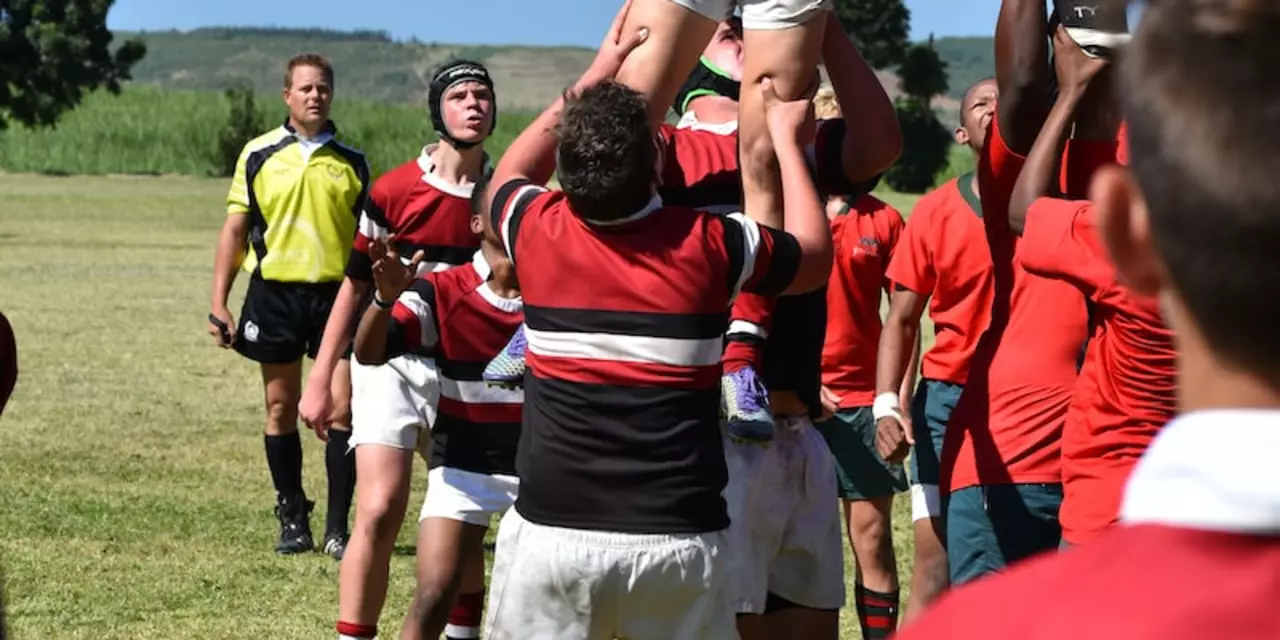Rugby League is a sport similar to American football, but with a few differences. Despite its popularity in other parts of the world, Rugby League is not as popular in the UK. There are a few reasons for this, including its history, lack of media coverage and funding, and the popularity of other sports such as cricket and football. Nevertheless, the sport is slowly gaining ground in the UK, with more teams being formed and more people watching the sport. This could lead to Rugby League becoming more popular in the future.
Sports Analysis: Straight Talk on Rugby Topics
Welcome to the Sports Analysis hub of Linlithgow Rugby Club. Here we cut the jargon and give you the real story behind the headlines. Whether you’re a local fan, a player, or just curious about the wider rugby world, you’ll find clear, bite‑sized commentary that helps you understand what’s happening and why.
Why Rugby League Struggles to Shine in the UK
First off, let’s talk about rugby league. It’s quick, physical, and shares many basics with union, yet it never grabbed the same crowd in our backyard. The key reason? History. Union clubs have been the heart of towns for over a century, and they own the stadiums, the schools, the local press. When league tried to break in, it hit a wall of tradition.
Media coverage is another big factor. TV slots, newspaper columns, and now streaming playlists all favor union. That means fewer league matches get seen, fewer sponsors, and a smaller budget for grassroots programs. Without kids seeing the sport on a Saturday afternoon, the pipeline dries up fast.
Finally, think about competition. Football dominates the Saturday scene, cricket fills the summer, and union already has a strong foothold. League ends up fighting for the same fans and resources, and often comes up short. Still, new clubs are forming, social media is giving league a louder voice, and the fan base is slowly growing. It’s a long road, but the momentum is there.
What’s Holding Back the USA Rugby Team?
Switching sides of the Atlantic, the USA rugby side has been under fire for poor performances. One major issue is funding. Unlike New Zealand or England, the USA doesn’t pour big money into the sport, so coaching, facilities, and player development lag behind.
Coaching quality matters a lot. Many top coaches are brought in from overseas for short stints, which creates inconsistency in training methods and game plans. When players can’t settle into a stable system, they struggle to build the needed chemistry for high‑level play.
Experience is another missing piece. The American domestic league is still finding its footing, so players often lack the intense, weekly competition that clubs in Europe get. Without that grind, stepping onto the world stage feels like jumping into the deep end without a float.
Attracting talent is also tough. Rugby isn’t a top career choice in the U.S., and salaries are modest compared to football or basketball. The best athletes often pick other sports where the money and fame are bigger. That makes it hard to build a deep squad that can compete with seasoned nations.
Despite these hurdles, there are signs of progress. Grassroots programs in high schools and colleges are increasing, and the professional league is gaining visibility. If the USA can keep investing in coaching, facilities, and player pathways, the gap will start to close.
That’s the bottom line for our two hot topics today. Rugby league may still be fighting for a seat at the UK table, but it’s gaining ground. The USA team has a mountain to climb, yet the right moves could turn the tide. Keep checking this page for fresh analysis, and feel free to join the conversation – your take could spark the next big idea.
The USA Rugby Team has not performed well in international competitions, leading to questions about why this is the case. It is argued that the team lacks the necessary resources, such as quality coaching, dedicated training facilities, and financial support, to compete at a world-class level. Additionally, the team's lack of international experience is seen as a factor in their poor performances. Finally, the team has been unable to attract the best players due to the lack of attractive salaries, making it difficult for them to compete against teams of the same level. As a result, the USA Rugby Team has not achieved the success expected of them.

